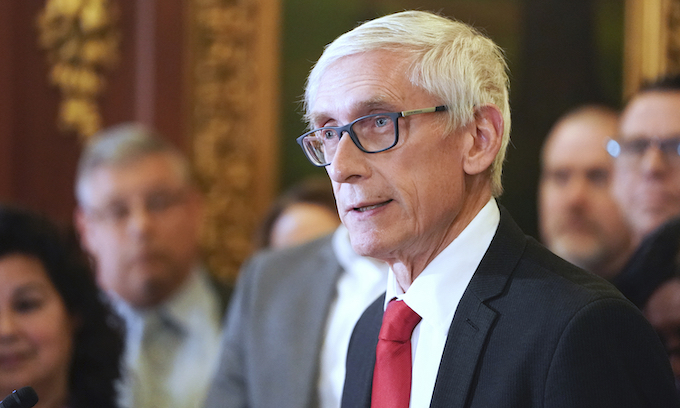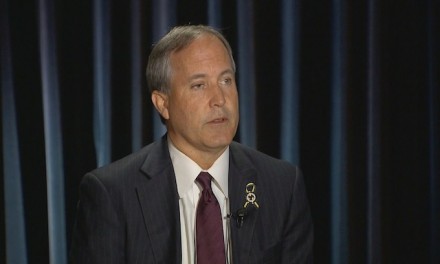The Wisconsin Supreme Court struck down Gov. Tony Evers’ administration’s extended “safer at home” directive that canceled in-person K-12 schooling this academic year and kept “nonessential” businesses closed until the last week of May.
The court, in a 4-3 ruling released Wednesday effective immediately, found the order issued by the state’s top health official exceeded her authority and that she needed legislative oversight to implement the language in the first place.
The order rolling back statewide measures that officials say are crucial to protecting public health and safety during the novel coronavirus pandemic is the first successful challenge of its kind nationally.
But it also means that local government officials are likely to put in place their own restrictions across Wisconsin, creating a patchwork of regulations where bars, restaurants and other establishments are able to operate in one city or county but not a neighboring one.
Already Wednesday evening, Madison and Dane County health officials announced they are implementing most parts of the extended stay at home order, keeping area schools closed and allowing only essential travel for residents.
Siding with the Republicans that brought the lawsuit last month, most of the court’s conservative justices argued a state agency is unable to “confer on itself the power to dictate the lives of law-abiding individuals as comprehensively as the order does without reaching beyond the executive branch’s authority.”
Evers slammed the ruling and GOP lawmakers who pushed for it, saying the action sets “us back in our health and our economy” and means people are going to get sick across the state.
“Today, Republican legislators convinced four members of the court to throw the state into chaos,” he told reporters.
But Speaker Robin Vos, R-Rochester, and Majority Leader Scott Fitzgerald, R-Juneau, countered in a statement the court’s action doesn’t “promote people to act in a way that they believe endangers their health.”
“Republicans believe business owners can safely reopen using the guidelines provided by the Wisconsin Economic Development Corporation,” they said. “We urge our fellow small business owners to utilize the suggestions as a safe and effective way to open up our state.”
The Republican Legislature initially argued that justices should grant an injunction preventing enforcement of the extension to buy time for Department of Health Services Secretary Andrea Palm to work with the Legislature through the emergency rule process to craft an alternative.
But the court in its ruling noted because over two weeks passed since it began considering the case, “we trust the Legislature and Palm have placed the interests of the people of Wisconsin first and have been working together in good faith to establish a lawful rule that addresses COVID-19… ”
“People, businesses and other institutions need to know how to proceed and what is expected of them,” the majority opinion continued. “Therefore, we place the responsibility for this future law-making with the Legislature and DHS where it belongs.”
It doesn’t appear that the state’s mandated school closures for the rest of this academic year are affected by the ruling. A footnote on page 31 of the filing said the language doesn’t apply to the section of the extension pertaining to public and private K-12 schools.
Evers said the Department of Health Services will work on a new plan through the state’s rulemaking process beginning Thursday, but he cautioned the effort will take a while.
“This isn’t going to be an overnight thing and in the meantime we’re going to have 72 counties doing their own thing,” he said. “We were in a good place. We are no longer in a good place.”
Asked about the possibility of enacting legislation, Evers responded: “Well hell’s bells, we’ve had how many months and there’s been no plan from the Republicans, so if they have some secret way of doing this, we’ll do that tomorrow.”
Vos and Fitzgerald didn’t mention legislation in their statement but noted they had previously asked Evers to negotiate with them on a plan for reopening.
“We would urge the Evers administration to work with us to begin promulgating rules that would provide clear guidance in case COVID-19 reoccurs in a more aggressive way,” they said.
The ruling saw support from four of the court’s five conservative justices: Pat Roggensack, Rebecca Bradley, Daniel Kelly and Annette Ziegler.
Fellow conservative Justice Brian Hagedorn joined liberal colleagues Rebecca Dallet and Ann Walsh Bradley in dissenting. Hagedorn’s dissent argued the majority’s decision “is not grounded in the law.”
Hagedorn argued the Legislature failed to identify any harm to itself under the extended order, adding the body lacks standing to bring the claim and concluding “it should be dismissed.”
“The judiciary must never cast aside our laws or the constitution itself in the name of liberty,” he wrote. “The rule of law, and therefore the true liberty of the people, is threatened no less by a tyrannical judiciary than by a tyrannical executive or legislature.”
Wednesday’s ruling wasn’t the first time Hagedorn sided with his liberal counterparts in a high-profile case. He previously did so when the conservative Wisconsin Institute for Law & Liberty this winter asked the court to take a case over the state’s voter rolls that could result in the removal of thousands of registered voters, dividing the court 3-3 because Kelly had recused himself.
Kelly, who is facing election to a full 10-year term on the court next month, opted to sit on the sidelines over the issue in January when WILL previously asked the justices to take the case, though the panel split 3-3 over whether to do so.
While other states have seen legal challenges to stay-at-home orders, including Michigan, California, Kentucky and Illinois, national media reports show none have prevailed.
The Republican Legislature’s lawsuit came after Evers’ administration extended the so-called “safer at home” order from April 24 to May 26. In the intervening weeks, the state has been working to “turn the dial,” in Evers’ words, to gradually reopen certain businesses.
This week, retailers across Wisconsin were allowed to operate with up to five customers at a time inside a standalone or strip mall-based store with entrances outside. That order also gave drive-in movie theaters the go-ahead to operate.
Palm, who has been leading the state’s response to the COVID-19 crisis, was appointed to serve in the role more than a year ago, but the Wisconsin Senate has yet to confirm her, the final step in making her appointment permanent.
Madison, Dane County adopt stay at home language
An hour after the court ruling, Public Health Madison & Dane County announced officials would be enforcing the “safer at home” order previously in place at the state level.
Most parts of the order are being enforced locally, effective immediately, officials said.
Dane County Executive Joe Parisi said in a news conference the court’s decision “opened up the door without a plan, throwing the state into chaos that mimics what we’ve been seeing at the federal level.”
“This isn’t some theoretical debate about left and right and government reach,” he said. “This is a public health emergency. This is the time we all need to come together to do the right thing to protect our neighbors.”
Local health officials are still relying on criteria listed under Evers’ “Badger Bounce Back” program, the release noted, which sets certain benchmarks to reopening the state, including more testing, a two-week decline in state cases and the gathering of more protective equipment.
Free local COVID-19 drive-thru testing began Monday at Madison’s Alliant Energy Center. Testing is strongly recommended for those with symptoms of the disease, though others are also able to get tested, the Wisconsin State Journal reported this week.
Mayor Satya Rhodes-Conway urged residents to wear face coverings, wash hands, telecommute and stay in place as much as possible.
“Here in Madison, we believe in science, and we will be guided by data,” she said. “We will reopen, but we will do that in a phased way that protects public health while restarting our economy.”
Abigail Becker contributed to this report.
___
(c)2020 The Wisconsin State Journal (Madison, Wis.)
Visit The Wisconsin State Journal (Madison, Wis.) at www.wisconsinstatejournal.com
Distributed by Tribune Content Agency, LLC.
—-
This content is published through a licensing agreement with Acquire Media using its NewsEdge technology.



















Recent Comments